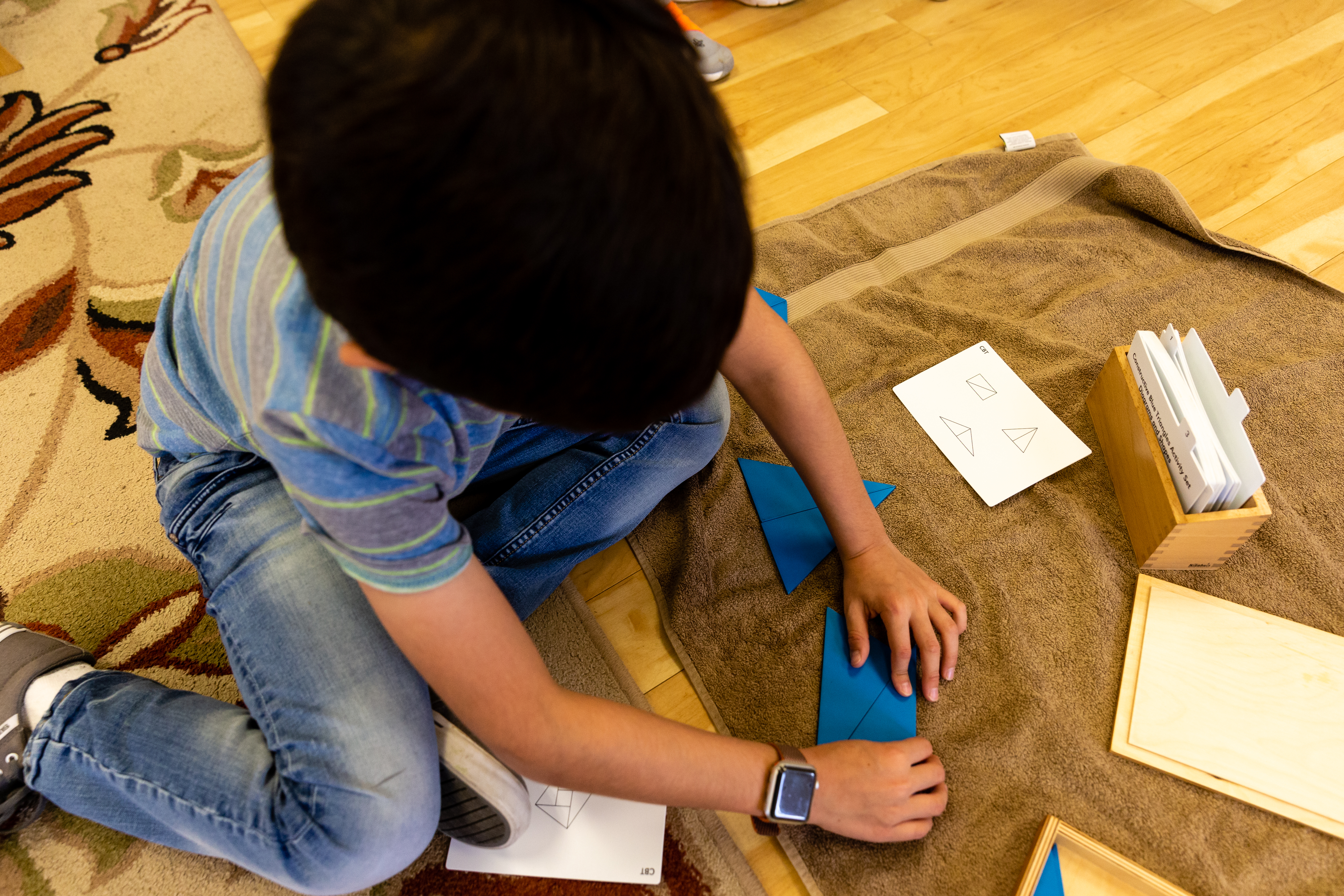(858) 759-0631
Moms! Here’s a Montessori Method Project You Can Play With Your Kids Right Now!
It’s called ‘Do Nothing. Expect Creativity!’
The Problem
Today, inactivity is seen as a weakness in parents and children. Every spare moment needs to be goal-driven and maxed out.
In our lifetimes, parental culture has gone from under-parenting and being outdoors until dinnertime to uber-parenting and optimizing every second with activity. Today, we schedule our kids in ballet lessons, language lessons, art classes and sports teams--intertwined with all manner of electronic and digital devices.
The outgrowth: we parents are forgetting a core component that our kids need to learn firsthand—creativity and imagination.
How Communications Has Changed
Within the past 100 years, American society has undergone a communications sea change.
When the first radio stations appeared, our country was drawn together for the first time as news and entertainment entered our living rooms via our ears.
In the 1950s, television entered the scene to provide color visuals and stereo audio to entertainment.
Then, came the computer revolution. Today, the proliferation of handheld devices has fragmented people’s sense of community and eats our time via sight, sound and motion if we let it.
The Montessori Difference
At Lifetime Montessori School in Santaluz, a suburb of San Diego, we are not big fans of shut-in kids playing video games and constantly being amused and entertained from external sources.
Nor are we big fans of overscheduling our children from sun to sun.
We are, however, big fans of unstructured play time! In fact, Lifetime Montessori recently constructed a massive playground in our ‘backyard’ that is rife with possibilities for creativity, imagination and self-sufficiency.
Why?
Because we support boredom.
When you’re bored, you are exercising your mind to imagine and create flights of fancy and discovery! It’s okay to let your mind wander and follow it where it wants to go—even if it’s down the rabbit hole.
Boredom allows you to take control of your brain. It allows you to enjoy your own company. It lets you work through puzzles, mazes, strategies, tactics and scenarios.
It’s even more fun with friends. Best of all, boredom is free.
Joseph Brodsky, poet and Nobel Prize winner, wrote, “Life is repetitive. Boredom is really a pathway toward originality and inventiveness. Boredom represents pure, undiluted time in all its repetitive, redundant, monotonous splendor.”
Boredom is good.
Try This Helpful Exercise
Parents, when your child says, “I’m bored,” say, “Let’s think of what we can do. Go outside in the backyard and think a moment. Come back when you’re ready and tell me what you saw!”
Within a short while, the child will see more than big trees and tall grass. He or she will see an entire natural world of wonder—a world he or she can become one with and create scenarios about. What was the backyard now becomes the play world of your child’s mind. The imaginative and creative elements of your child’s inner world can now come to the fore.
So, what was boredom is now a world of the self. When your child recounts what he/she saw and learned outside, it will be far more entrancing and embracing than Candy Crush.
It will be the starting point to building a world from scratch that the child can become part of and embedded with.
It is this focus that will allow our children to understand that the world is not an never-ending, entertaining video game. Rather, being unshackled from the laptop or social media is a tool to unlocking a child’s creativity, friendships and the real pace of time as we grow and live every day.

